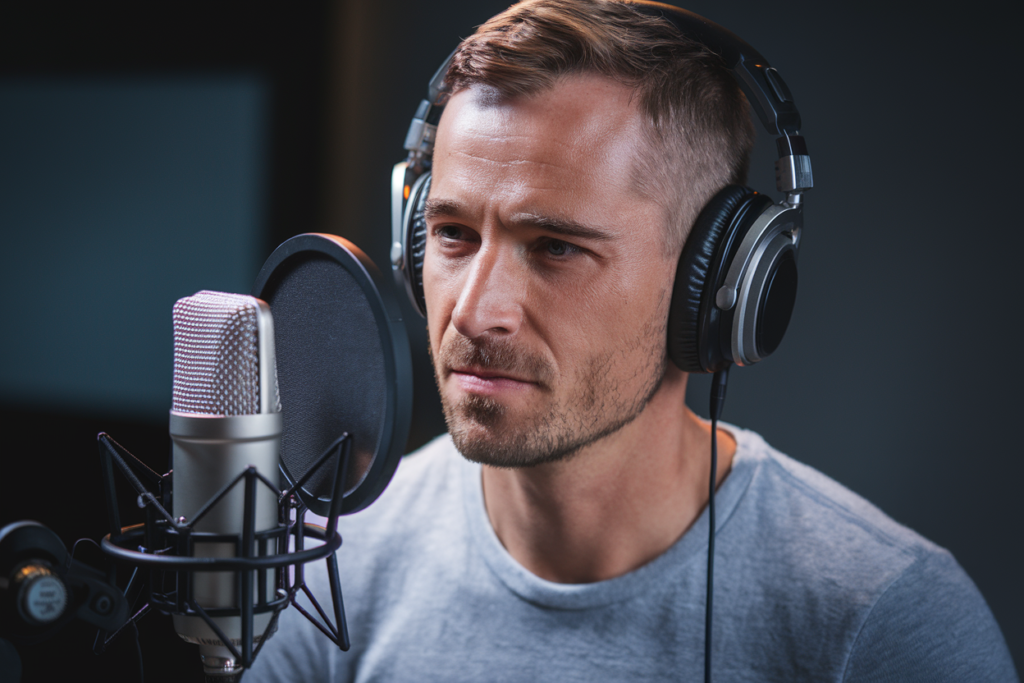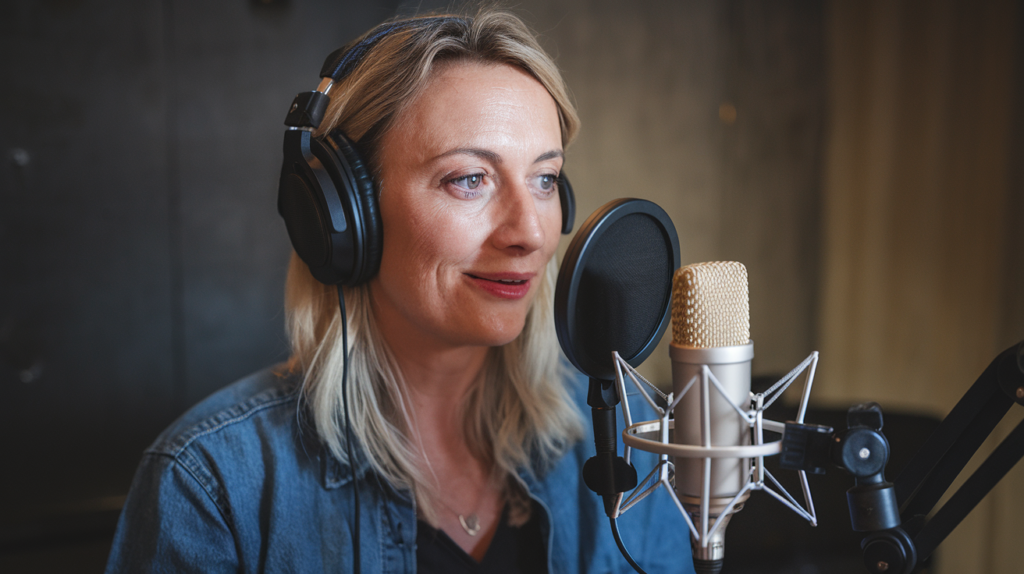Key Takeaways
- Distinct Accents and Intonations: Parisian French is known for its sophistication and urbanity, while Provençal French offers warmth and rustic charm, affecting audience perception in voiceovers.
- Target Audience Connection: Choosing the right dialect based on your target demographic can significantly enhance engagement and emotional resonance in your projects.
- Pronunciation Variations: Parisian French features precise articulation, making it suitable for formal settings, whereas Provençal French has a melodic quality that feels approachable.
- Cultural Vocabulary Differences: Each dialect incorporates unique vocabulary influenced by regional culture, which is essential for authentic storytelling in voiceover work.
- Market Demand Insights: Understanding industry preferences for either dialect helps you select appropriate voice talent to align with project goals—Parisian for global appeal and Provençal for local relevance.
- Localization Challenges: Effective localization requires navigating pronunciation differences, vocabulary variations, and emotional delivery to ensure messages resonate authentically across diverse audiences.
Ever wondered why some French voiceovers sound so different? The differences between Parisian and Provençal French can transform the way audiences perceive a project. While both dialects share roots, their distinct accents, intonations, and expressions can create unique atmospheres in voiceover work.
If you’re diving into the world of French media or considering a project that requires localization, understanding these nuances is crucial. Parisian French often embodies sophistication and urbanity, while Provençal French brings warmth and rustic charm. Knowing which style to choose can make all the difference in connecting with your audience. Let’s explore how these variations impact voiceovers and what they mean for your next creative endeavor.
Overview of Voiceovers in France
Voiceovers play a crucial role in French media, allowing creators to connect with diverse audiences. In France, the two primary dialects—Parisian and Provençal—bring unique qualities to voice work.
Parisian French often embodies sophistication and urbanity. It’s the accent most familiar to international listeners and frequently used in corporate videos, commercials, and films aimed at a broader audience. This dialect’s crisp enunciation and dynamic intonation make it ideal for conveying professionalism.
Conversely, Provençal French carries warmth and rustic charm. Voice artists using this dialect evoke regional authenticity that resonates well with local audiences. It’s particularly effective for projects targeting specific demographics or emphasizing cultural heritage.
When selecting voice talent for your project, understanding these nuances matters greatly. Different accents can alter the emotional impact of your message significantly. For instance, a voice actor delivering content in Parisian French may convey elegance while a voice over artist using Provençal might bring familiarity and sincerity.
The choice between these two dialects influences not just how information is presented but also how it’s perceived by your target audience. Tailoring your voiceover approach based on regional preferences ensures better engagement and connection with listeners.
Recognizing the distinct characteristics of Parisian versus Provençal French enhances your project’s effectiveness. By leveraging the right voice over talent, you can enrich storytelling through authentic representation that speaks directly to viewers’ hearts.
Key Characteristics of Parisian French
Parisian French stands out in voiceovers, renowned for its sophistication and urban appeal. Its distinct features make it a go-to choice for corporate videos, commercials, and films targeting a global audience.
Pronunciation and Accent
Pronunciation in Parisian French is precise and clear. You’ll notice the nasal vowels pronounced distinctly, creating a polished sound that resonates well with international listeners. The accent carries an elegance that suits formal settings perfectly. For voice actors aiming to convey professionalism or luxury, mastering this accent can significantly enhance the overall impact of the message. Subtle intonations also play a crucial role; they help emphasize key phrases while maintaining listener engagement.
Vocabulary Variations
Vocabulary differs between Parisian and other dialects like Provençal French. In Parisian French, you might encounter terms that reflect contemporary trends or urban culture. This modern lexicon appeals to audiences familiar with city life. For instance, using specific idioms or expressions native to Paris can resonate more with cosmopolitan viewers than regional alternatives would. Such vocabulary choices allow voice artists to connect effectively with their target audience while ensuring clarity and relatability in their delivery.
Understanding these key characteristics of Parisian French enhances your ability to select the right voice talent for your project, ensuring authenticity and emotional resonance throughout your content.
Key Characteristics of Provençal French
Provençal French possesses unique traits that set it apart from its Parisian counterpart, especially in voiceovers and localization efforts. Understanding these characteristics can enhance your project’s emotional authenticity.
Pronunciation and Accent
Provençal French features a distinctive pronunciation that reflects its regional roots. The accent carries a melodic quality, often pronounced with softer consonants and rounded vowels. This charm adds warmth to voiceovers, making them feel approachable and genuine. A voice actor using Provençal French might evoke feelings of familiarity, drawing listeners into the narrative effortlessly.
Vocabulary Variations
Vocabulary in Provençal French differs significantly from Parisian usage, incorporating terms influenced by local culture and traditions. You’ll find expressions rooted in the region’s history that resonate more deeply with local audiences. For instance, while Parisian French embraces modern slang and urban vernacular, Provençal vocabulary emphasizes agricultural references and historical context. This variation enriches storytelling through voiceover work, allowing you to connect authentically with diverse target audiences.
By considering these key characteristics of Provençal French in your choice of voice talent, you elevate your project’s engagement potential while honoring regional nuances essential for effective communication.
Impact on Voiceover Industry
Understanding the impact of Parisian and Provençal French on the voiceover industry is crucial for anyone looking to connect with diverse audiences. Each dialect carries its own flavor, affecting not just how a message is delivered but how it’s received.
Audience Perception
Audience perception hinges significantly on accent and intonation. When you choose a voice actor who speaks Parisian French, you’re tapping into an accent that conveys sophistication and modernity. This familiarity resonates well with international listeners, making it ideal for corporate videos or commercials targeting a broader market. Conversely, opting for a voice artist using Provençal French brings warmth and authenticity to your project. This accent evokes cultural ties and local charm, creating a connection that feels personal and relatable—perfect for projects aimed at regional audiences.
What’s more, these perceptions can dramatically alter emotional responses. A polished Parisian delivery might evoke feelings of elegance and professionalism, while a heartfelt Provençal tone can inspire trust and comfort in listeners.
Market Demand
Market demand reflects the nuances between these two dialects as well. Many industries prioritize voiceover talent that aligns with their target demographics’ preferences. For example, media companies producing content meant for global consumption often favor Parisian French due to its widespread recognition. In contrast, businesses focusing on local markets may seek out Provençal voice actors to strengthen cultural relevance.
As trends evolve within different sectors—like tourism or gastronomy—the demand for specific dialects also shifts accordingly. Engaging the right voice over talent not only enhances brand identity but also ensures effective communication by resonating deeply with intended audiences.
By recognizing these dynamics in audience perception and market demand, you can make informed decisions when selecting voiceovers for your projects. Tailoring your approach based on whether you prefer Parisian or Provençal accents will enrich storytelling while fostering genuine connections with listeners across various platforms.
Challenges in Localization
Localization presents unique challenges when working with Parisian and Provençal French voiceovers. You might find that selecting the right voice talent requires a deep understanding of regional accents, intonations, and cultural nuances. Each dialect shapes how audiences perceive messages, making it essential to choose wisely.
One challenge lies in pronunciation differences. For instance, Provençal French features softer consonants and rounded vowels, while Parisian French emphasizes precise articulation. This distinction can affect clarity and impact in your projects. If you’re targeting a global audience, Parisian French often serves as the go-to option due to its familiarity. But if you aim for local resonance, Provençal might be the better choice.
Another hurdle involves vocabulary variations. The terms used in each dialect differ significantly; Provençal includes words tied to local culture that may not translate well into Parisian contexts. This divergence can create confusion or disconnect if not addressed properly during production.
You also need to consider emotional delivery when choosing a voice artist. A skilled voice actor using Parisian French may convey sophistication but could miss out on the warmth associated with Provençal narratives. Aligning your project’s tone with the appropriate accent enhances emotional authenticity and strengthens connections with listeners.
Market demand adds another layer of complexity. While many international brands lean towards Parisian French for broader appeal, local markets often prefer Provençal talent for their intimate cultural ties. Understanding these dynamics helps you navigate selection processes effectively.
Ultimately, mastering localization challenges ensures your message resonates deeply across diverse audiences while maintaining relevance within specific regions. By focusing on these elements—pronunciation, vocabulary, emotional delivery—you enhance storytelling potential through tailored voiceover choices that honor both dialects’ unique characteristics.
Conclusion
Understanding the differences between Parisian and Provençal French in voiceovers isn’t just about accents. It’s about connecting with your audience on a deeper level. Each dialect carries its own emotional weight and cultural significance that can shape how your message is received.
When you choose the right accent for your project, you’re not only enhancing clarity but also enriching the overall storytelling experience. Whether you aim for the polished sophistication of Parisian French or the warm authenticity of Provençal French, aligning your voiceover choice with regional nuances is crucial. This thoughtful approach can elevate engagement and create lasting impressions, ensuring your content resonates effectively across diverse audiences.
Frequently Asked Questions
What are the key differences between Parisian and Provençal French?
Parisian French is known for its sophistication, clear pronunciation, and urban vocabulary, making it suitable for international audiences. In contrast, Provençal French features a melodic quality with softer consonants and reflects local culture through its unique vocabulary. These differences impact how messages are perceived by different audiences.
Why is accent important in voiceovers?
Accents play a crucial role in conveying emotion and authenticity. Parisian French may evoke elegance and modernity, while Provençal French offers warmth and familiarity. Choosing the right accent can significantly enhance audience engagement and connection to the content.
How does regional dialect affect localization?
Understanding regional dialects is vital for effective localization. Variations in pronunciation, intonation, and vocabulary can alter message clarity and emotional delivery. Selecting the appropriate accent ensures that content resonates well with both local and broader audiences.
When should I choose Parisian over Provençal French for voice talent?
Choose Parisian French for global projects targeting international listeners due to its polished sound. Opt for Provençal French when aiming to connect deeply with local audiences or highlight cultural heritage through warm, authentic communication.
What challenges exist in using these dialects in media?
Challenges include navigating pronunciation differences, vocabulary variations, and understanding cultural nuances that affect clarity and emotional resonance. A thorough grasp of these elements is essential to ensure effective communication across diverse audiences while maintaining relevance within specific regions.







